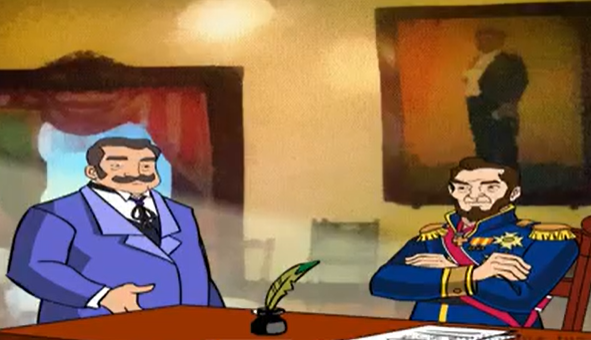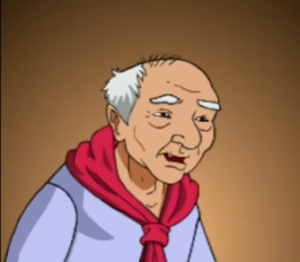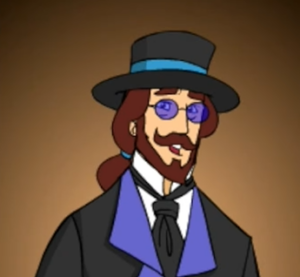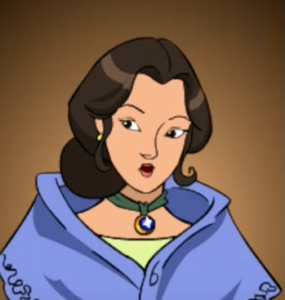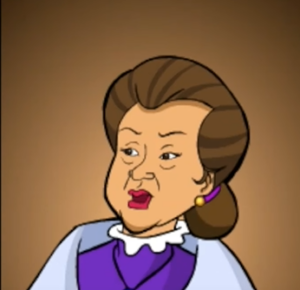El Filibusterismo (El Fili) – Chapter 31
Chapter Title: The High Official
Setting: Malacanang Palace
Characters:
- Ben Zayb
- Capitan General
- High Official
- Cabesang Tales (mentioned)
- Padre Camorra (mentioned)
- Macaraig (mentioned)
- Isagani (mentioned)
- Padre Florentino (mentioned)
- Simoun (mentioned)
- Basilio (mentioned)
Plot:
The high official argues with Capitan General for Basilio’s release form jail.
Chapter Summary:
The chapter begins with the quote:
L’Espagne et sa vertu, l’Espagne et sa grandeur
Tout s’en va!
(Spain and her virtue, Span and her grandeur
All that is lost!)
-Victor Hugo
Newspapers in Manila talk about murders in Europe instead of the killings in the provinces. There are no articles about a band of tulisanes being led by a chieftain called Matanglawin (Hawkeye). There are only few articles that mention the murders of people in convents and Spaniards.
The public knows that Padre Camorra left Tiani, but they don’t know if he moved to a different town or went to stay in a convent in Manila. Ben Zayb feels bad for Padre Camorra, and says that Padre Camorra has a “good heart”.
Most students were freed thanks to donations. The first was Macaraig and the last was Isagani (when Padre Florentino went to Manila a week later). People praised Capitan General for being ‘merciful’ to the students. Basilio stayed in jail because he was found with prohibited books (referring to the pamphlets of Simoun or his copy of “Legal Medicine and Toxicology” by Dr. Mata).
Capitan General was advised that there had to be someone to stay in jail or else no one will respect authority. The high official argues for Basilio’s freedom, saying that if he stays in jail he cannot graduate and has to study for another year. But the high official and Capitan General disagree most of the time. Capitan General says it is more reason for Basilio to stay in jail, as studying another year will be good for him.
The high official says Basilio is innocent and that he wasn’t at the dinner, but Capitan General says the more innocent the criminal, the better, so that people will be terrified. It is better to sacrifice the good of one for the good of many.
The high official asks if Capitan General is afraid of the responsibility. Capitan General asks “What do I have to fear?” as his conscience is clean. He explains that the minister who appointed him won’t care. The high official argues that he should not forget about the country. Capitan General asks why he should care about the country when he has no duties to it and it is not the one that elected him.
The high official says that Capitan General was chosen by Spain, so he should treat the Indios well so they will not hate Spain. He reminds Capitan General that when he was on his way to the Philippines, he promised to govern with justice. Capitan General argues that he is doing what he promised. He asks the high official if he, too, should share the blame and the high official says he cannot be ordered to because he has rights.
The high official says he does not want Spain to lose the Philippines but he also doesn’t want Filipinos to be abused. He says that to be great, Spain does not need to be cruel, and in fact was greater when it only had its own territory. The high official accuses General of not understanding the greatness of the Spanish name and that he does not have honor because for Capitan General, the Spaniard can do evil to keep what he wants, but for the high official, Spain should lose everything before honor.
High official says he does not want Spain to be known as a tyrant as that’s not what the ancient kings’ purpose was. He says that they promised to protect the Philippines and yet they are taking away the freedoms of Indios. They should put themselves in the place of Filipinos to ask themselves what they would do if put in the same situation.
The high official explains that when people are denied their rights, it is natural to treat those that denied them as if they were robbers. The high official says that he is not a soldier but would allow himself to be torn apart to defend the integrity of Spain. He would rather stand beside the Filipinos than to conquer them, even if Spain is conqueror.
Capitan General ignores the speech and just asks the high official when the boat leaves. The high official stares at him then leaves the palace, goes to the garden and gets in a carriage. He tells the driver that when they eventually declare themselves independent someday, to remember that in Spain there were people who fought for their rights. The driver just asks where he wants to be brought.
The high official hands in his resignation letter two hours later and plans to return to Spain on the next boat.
Trivia:
Quotes:
Capitan General: (to the High official) To govern is to work that way, Senor; often one must sacrifice the good of one for the good of many… But I am doing more: from the good of one man I derive the good of all, I preserve the principle of authority so threatened, its prestige is respected and maintained. With this act of mine I correct our own errors and those of the others.
General: I have nothing more than my conscience, I behave according to my conscience, my conscience is satisfied.
General: The country, what have I got to do with the country? Have I by chance contracted obligations with her? Do I owe her my office? Was she the one who had me elected?
High Official: Your Excellency has not been chosen by the Filipino people but by Spain, all the more reason why you should treat the Filipinos well, so that they would have nothing with which to reproach Spain! All the more reason, my General! Your Excellency upon coming here promised to govern with justice, to seek the welfare…
High official: I do not want Spain to lose this beautiful empire, these eight millions of subjects, submissive and patient, who live on disillusion and hopes; but neither do I wish to soil my hands with their inhuman exploitation.
High official: No, Spain, to be great, has no need to be a tyrant; Spain suffices unto herself. Spain was greater when she only had her own territory wrested from the clutches of the Moor! I am also a Spaniard, but before a Spaniard, I am a man, and before Spain and above Spain, is her honor.
High official: They promised to these islands protection and rectitude, and we play with the lives and liberties of their inhabitants.
High official: Let us put ourselves in the place of Filipinos and ask ourselves what he would do in their case!
High official: When a people is denied light, home, liberty, justice, goods without which life is not possible and at the same time constitute the patrimony of man, those people have the right to treat those who despoil them as robbers who attack on the street.
High official: I would place myself beside the oppressed Filipinos, because I would prefer to succumb for the trampled rights of humanity than to triumph with the egotistic interests of a nation, even if that nation be called as it is called, Spain!
High official: Someday, when you declare yourselves independent, remember that in Spainthere was no lack of hearts which beat for you and fought for your rights!
Driver: Where to, Senor?

